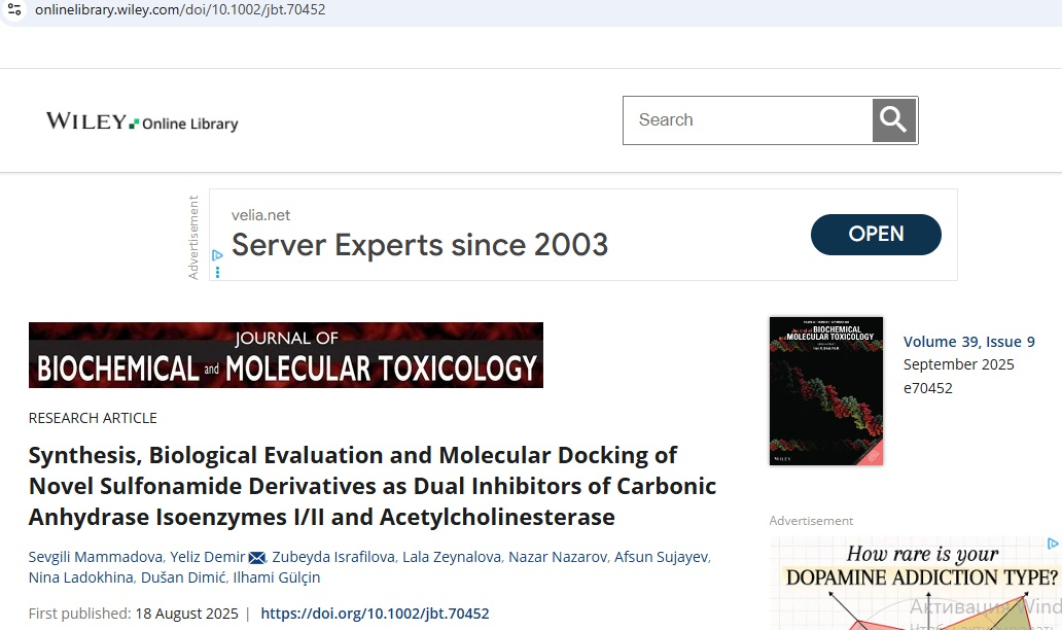A group of leading scientists from the Institute of Additive Chemistry of the Ministry of Science and Education of the Republic of Azerbaijan, together with their colleagues from Turkey, have synthesized new sulfanilamide derivatives as dual inhibitors and conducted a comprehensive biological evaluation.
According to “Tehsil365”, the institute’s Executive Director, Professor Afsun Sucayev, stated that as a result of extensive research, a new series of multifunctional sulfanilamide-based compounds containing aziridine, dithiocarbamate, thiocyanate, and benzo[d]thiazole fragments were obtained through nucleophilic substitution reactions. It was determined that these compounds possess strong and selective inhibitory activity against hCA I, hCA II, and AChE. Among them, some compounds even surpass clinically used standard drugs such as acetazolamide and tacrine.
Prof. Sucayev noted that these findings not only enhance the therapeutic potential of sulfonamide-based compounds as dual or multi-target enzyme inhibitors but also pave the way for the rational design of a new generation of agents targeting carbonic anhydrase and acetylcholinesterase in the context of diseases such as glaucoma and Alzheimer’s.
The significant results obtained during the study have been published in the world-renowned Wiley journal Journal of Biochemical and Molecular Toxicology. According to Journal Citation Reports, the journal is classified as Q2 and has an impact factor of 2.8.

